#some of us like tragedy and seeing characters deal with trauma in a gritty and realistic way!!!!!
Explore tagged Tumblr posts
Text
Favorite films discovered in 2020

Well, this year sucked. I did see some good movies though. Some even made after I was born!
Perfect Blue (dir. Satoshi Kon, 1997)

I watch a lot of thrillers and horror movies, but precious few actually unsettle me in any lasting way. This cannot be said of Perfect Blue, which gave me one of the most visceral cinematic experiences of my life. Beyond the brief flashes of bloodletting (you will never look at a screwdriver the same way again), the scariest thing about Perfect Blue might be how the protagonist has both her life and her sense of self threatened by the villains. The movie’s prescience regarding public persona is also incredibly eerie, especially in our age of social media. While anime is seen as a very niche interest (albeit one that has become more mainstream in recent years), I would highly recommend this movie to thriller fans, whether they typically watch anime or not. It’s right up there with the best of Hitchcock or De Palma.
The Good, the Bad, and the Ugly (dir. Sergio Leone, 1966)
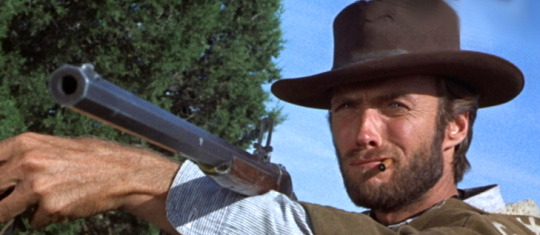
Nothing is better than when an iconic movie lives up to the hype. Clint Eastwood, Eli Wallach, and Lee Van Cleef play off of one another perfectly. I was impressed by Wallach as Tuco in particular: his character initially seems like a one-dimensional greedy criminal, but the performance is packed with wonderful moments of humanity. Do I really need to say anything about the direction? Or about the wonderful storyline, which takes on an almost mythic feel in its grandeur? Or that soundtrack?
Die Niebelungen (both movies) (dir. Fritz Lang, 1924)
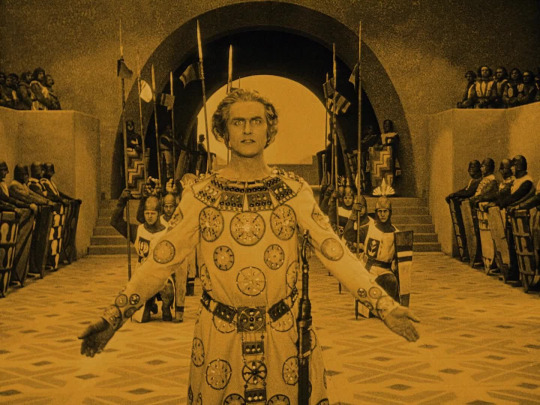
I did NOT expect to love these movies as much as I did. That they would be dazzlingly gorgeous I never doubted: the medieval world of the story is brought to vivid life through the geometrical mise en scene and detailed costuming. However, the plot itself is so, so riveting, never losing steam over the course of the four hours it takes to watch both movies. The first half is heroic fantasy; the second half involves a revenge plot of almost Shakespearean proportions. This might actually be my favorite silent Fritz Lang movie now.
Muppet Treasure Island (dir. Brian Henson, 1996)
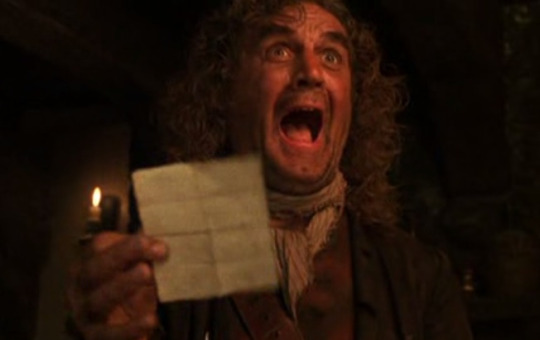
I understand that people have different tastes and all, but how does this movie have such a mixed reception? It’s absolutely hilarious. How could anybody get through the scene with “THA BLACK SPOT AGGHHHHHHH” and not declare this a masterpiece of comedy? And I risk being excommunicated from the Muppet fandom for saying it, but I like this one more than The Great Muppet Caper. It’s probably now my second favorite Muppet movie.
Belle de Jour (dir. Luis Bunuel, 1967)

I confess I’m not terribly fond of “but was it real???” movies. They tend to feel gimmicky more often than not. Belle de Jour is an exception. This is about more than a repressed housewife getting her kicks working as a daytime prostitute. The film delves into victim blaming, trauma, class, and identity-- sure, this sounds academic and dry when I put it that way, but what I’m trying to say is that these are very complicated characters and the blurring of fantasy and reality becomes thought-provoking rather than trite due to that complexity.
Secondhand Lions (dir. Tim McCanlies, 2003)
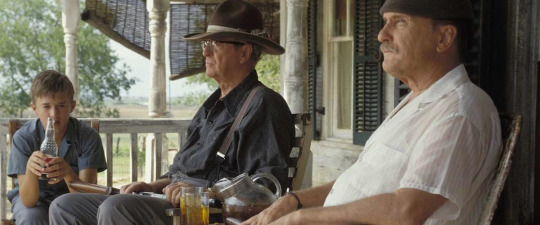
The term “family movie” is often used as a synonym for “children’s movie.” However, there is an important distinction: children’s movies only appeal to kids, while family movies retain their appeal as one grows up. Secondhand Lions is perhaps a perfect family movie, with a great deal more nuance than one might expect regarding the need for storytelling and its purpose in creating meaning for one’s life. It’s also amazingly cast: Haley Joel Osment is excellent as the juvenile lead, and Michael Caine and Robert Duvall steal the show as Osment’s eccentric uncles.
The Pawnbroker (dir. Sidney Lumet, 1964)

Controversial in its day for depicting frontal nudity, The Pawnbroker shocks today for different reasons. As the top review of the film on IMDB says, we’re used to victims of great atrocities being presented as sympathetic, good people in fiction. Here, Rod Steiger’s Sol Nazerman subverts such a trope: his suffering at the hands of the Nazis has made him a hard, closed-off person, dismissive of his second wife (herself also a survivor of the Holocaust), cold to his friendly assistant, and bitter towards himself. The movie follows Nazerman’s postwar life, vividly presenting his inner pain in a way that is almost too much to bear. Gotta say, Steiger gives one of the best performances I have ever seen in a movie here: he’s so three-dimensional and complex. The emotions on his face are registered with Falconetti-level brilliance.
The Apartment (dir. Billy Wilder, 1960)
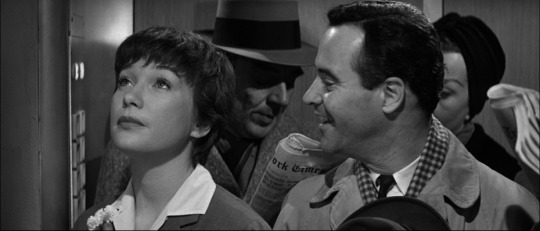
While not the most depressing Christmas movie ever, The Apartment certainly puts a good injection of cynicism into the season. I have rarely seen a movie so adept at blending comedy, romance, and satire without feeling tone-deaf. There are a lot of things to praise about The Apartment, but I want to give a special shoutout to the dialogue. “Witty” dialogue that sounds natural is hard to come by-- so often, it just feels smart-assy and strained. Not here.
Anatomy of a Murder (dir. Otto Preminger, 1959)
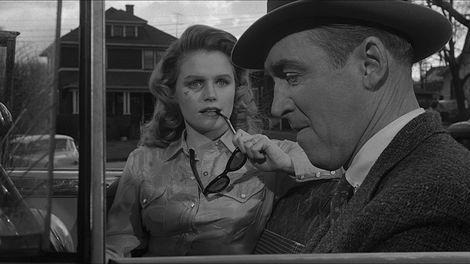
I’m not big into courtroom dramas, but Anatomy of a Murder is a big exception. Its morally ambiguous characters elevate it from being a mere “whodunit” (or I guess in the case of this movie, “whydunit”), because if there’s something you’re not going to get with this movie, it’s a clear answer as to what happened on the night of the crime. Jimmy Stewart gives one of his least characteristic performances as the cynical lawyer, and is absolutely brilliant.
Oldboy (dir. Park Chan-Wook, 2003)

Oldboy reminded me a great deal of John Webster’s 17th century tragedy The Duchess of Malfi. Both are gruesome, frightening, and heartbreaking works of art, straddling the line between sensationalism and intelligence, proving the two are not mutually exclusive. It’s both entertaining and difficult to watch. The thought of revisiting it terrifies me but I feel there is so much more to appreciate about the sheer craft on display.
Family Plot (dir. Alfred Hitchcock, 1976)
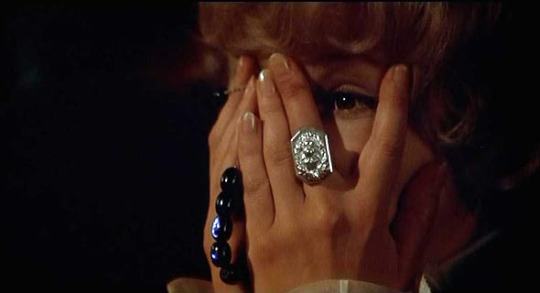
Family Plot is an enjoyable comedy; you guys are just mean. I know in an ideal world, Hitchcock’s swan song would be a great thriller masterpiece in the vein of Vertigo or Psycho. Family Plot is instead a silly send-up of Hitchcock’s favorite tropes, lampooning everything from the dangerous blonde archetype (with not one but two characters) to complicated MacGuffin plots. You’ll probably demand my film buff card be revoked for my opinion, but to hell with it-- this is my favorite of Hitchcock’s post-Psycho movies.
My Best Girl (dir. Sam Taylor, 1927)
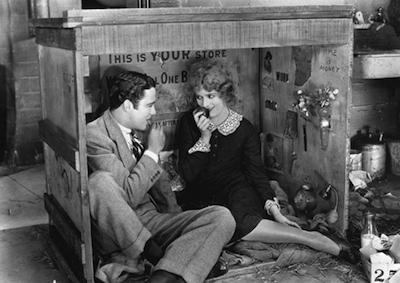
Mary Pickford’s farewell to silent film also happens to be among her best movies. It’s a simple, charming romantic comedy starring her future husband, Charles “Buddy” Rogers. Pickford also gets to play an adult character here, rather than the little girl parts her public demanded she essay even well into her thirties. She and Rogers are sweet together without being diabetes-inducing, and the comedy is often laugh out loud funny. It even mocks a few tropes that anyone who watches enough old movies will recognize and probably dislike-- such as “break his heart to save him!!” (my personal most loathed 1920s/1930s trope).
Parasite (dir. Bong Joon-ho, 2019)
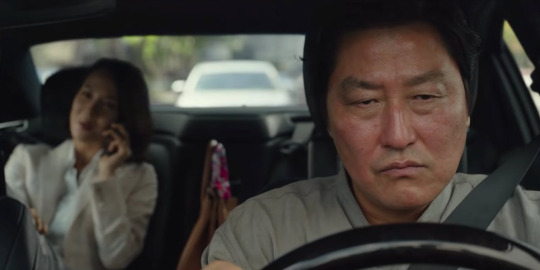
This feels like such a zeitgeist movie. It’s about the gap between the rich and the poor, it’s ironic, it’s depressing, it’s unpredictable as hell. I don’t like terms like “modern classic,” because by its very definition, a classic can only be deemed as such after a long passage of time, but I have a good feeling Parasite will be considered one of the definitive films of the 2010s in the years to come.
Indiscreet (dir. Stanley Donen, 1958)
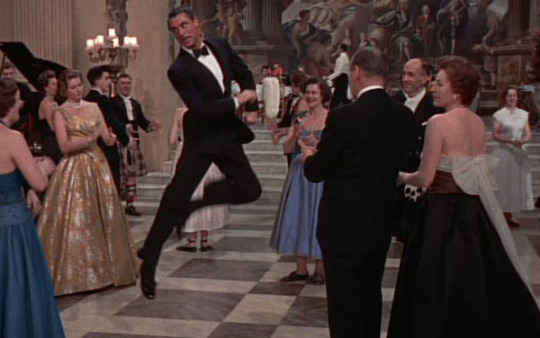
Indiscreet often gets criticized for not being Notorious more or less, which is a shame. It’s not SUPPOSED to be-- it’s cinematic souffle and both Ingrid Bergman and Cary Grant elevate that light material with their perfect chemistry and comedic timing. It’s also refreshing to see a rom-com with characters over 40 as the leads-- and the movie does not try to make them seem younger or less mature, making the zany moments all the more hilarious. It’s worth seeing for Cary Grant’s jig (picture above) alone.
The Taking of Pelham One Two Three (dir. Joseph Sargent, 1974)
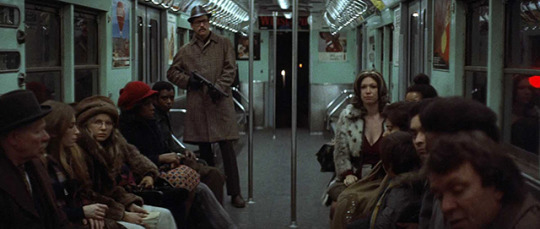
This movie embodies so much of what I love about 70s cinema: it’s gritty, irreverent, and hard-hitting. It’s both hilarious and suspenseful-- I was tense all throughout the run time. I heard there was a remake and it just seems... so, so pointless when you already have this gem perfect as it is.
They All Laughed (dir. Peter Bogdonavich, 1981)
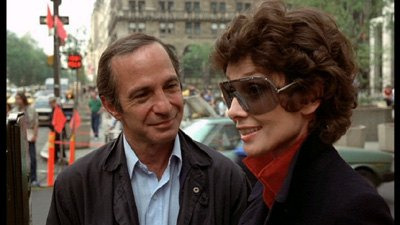
Bogdonavich’s lesser known homage to 1930s screwball comedy is also a weirdly autumnal movie. Among the last gasps of the New Hollywood movement, it is also marks the final time Audrey Hepburn would star in a theatrical release. The gentle comedy, excellent ensemble cast (John Ritter is the standout), and the mature but short-lived romance between Hepburn and Ben Gazarra’s characters make this a memorably bittersweet gem.
The Palm Beach Story (dir. Preston Sturges, 1942)

Absolutely hilarious. I was watching this with my parents in the room. My mom tends to like old movies while my dad doesn’t, but both of them were laughing aloud at this one. Not much else to say about it, other than I love Joel McCrea the more movies I see him in-- though it’s weird seeing him in comedies since I’m so used to him as a back-breaking man on the edge in The Most Dangerous Game!
Nothing Sacred (dir. William Wellman, 1937)
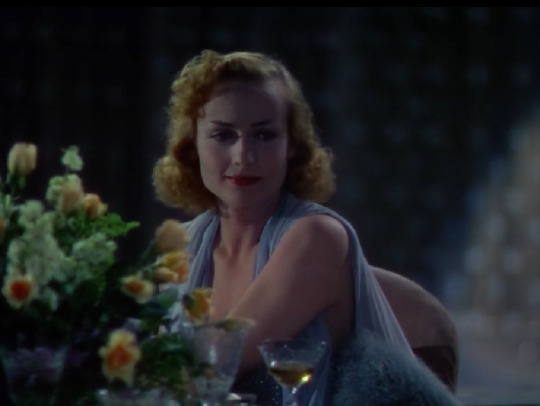
I tend to associate William Wellman with the pre-code era, so I’ve tried delving more into his post-code work. Nothing Sacred is easily my favorite of those films thus far, mainly for Carole Lombard but also because the story still feels pretty fresh due to the jabs it takes at celebrity worship and moral hypocrisy. For a satire, it’s still very warm towards its characters, even when they’re misbehaving or deluding themselves, so it’s oddly a feel-good film too.
Applause (dir. Rouben Mamoulian, 1929)

I love watching early sound movies, but my inner history nerd tends to enjoy them more than the part of me that, well, craves good, well-made movies. Most early sound films are pure awkward, but there’s always an exception and Applause is one of them. While the plot’s backstage melodrama is nothing special, the way the story is told is super sophisticated and expressive for this period of cinema history, and Helen Morgan makes the figure of the discarded burlesque queen seem truly human and tragic rather than merely sentimental.
Topaz (dir. Alfred Hitchcock, 1969)
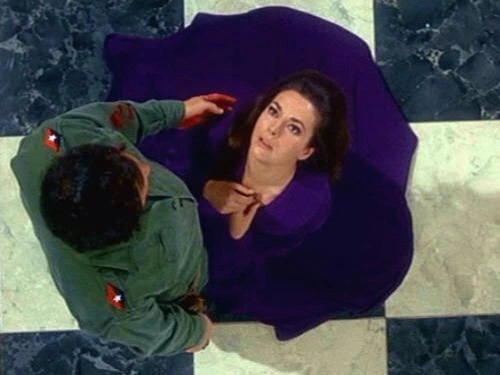
Another late Hitchcock everyone but me seems to hate. After suffering through Torn Curtain, I expected Hitchcock’s other cold war thriller was going to be dull as dishwater, but instead I found an understated espionage movie standing in stark contrast to the more popular spy movies of the period. It’ll never be top Hitchcock, of course-- still it was stylish and enjoyable, with some truly haunting moments. I think it deserves more appreciation than it’s been given.
What were your favorite cinematic discoveries in 2020?
#thoughts#belle de jour#topaz#family plot#the taking of pelham 123#the pawnbroker#nothing sacred#my best girl#applause#muppet treasure island#perfect blue#die niebelungen#parasite#the good the bad and the ugly#the palm beach story#they all laughed#indiscreet#oldboy#anatomy of a murder#the apartment#secondhand lions
157 notes
·
View notes
Text
Writing Bound - a photo essay?
Hewwo, I wrote a little nieyao/sangyao story a while back called Bound, this is me discussing how I used research to create the world, the characterization and themes of the story with the intention to further develop them at a later time.
You’ve read “write and don’t analyze”, well this is the opposite and it’s super important in the creation of complex and culturally sophisticated stories.
Dedicated to @annulareye and their silver tongue. But also many thanks to the other people interested in this.
The setting
I placed the action in Hong Kong. Probably inspired by the fact Wang Yizhou is from there? Or visits there a lot? And also its rich and deeply romantc cinematic tradition (Wong Kar Wai).
Also the sprawling metropolis setting amplifies emotions of isolation and vulnerability. The room for passion and romance is very narrow, and conditional, which explains the good reception of their erotic content. A space for flesh in the heart of a concrete city.

I also liked the idea the brothers as two artists that haven’t quite made it yet. That Mingjue might be the one who is holding them back, hiding them in a gritty industrial space with just the bare necessities instead of a fashionable studio, but that may also be the foundation of their success combined with his dependability.

Another inpiration for placing the action in Hong Kong are its sprawling cemetaries, and highly organized funerary culture. I found out about these cemetaries from a brilliant film - The Pillow Book, by Peter Greenaway. More so than a place of death, the cemetary is in a way a burrow of the metropolis. Making the afterlife a real possibility. The dead inhabit a place and they want things, a connection with them is still possible in such a setting.

I chose photography, and not some other type of event, or visual art as a discipline for the brothers, not only because of the beautiful aesthetics of the photography studio, because of the experience of photography itself, which is spontaneous and performative, but also highly organized and introspective.

The developing process where a picture appears slowly in its bath is also another allusion for manifesting feelings, their fleetingness and uncertainty, and how they could change according to who is viewing them and at what time.

Moments of spirit.
I had decided early on that a great deal of the romantic tension would rely on the contrast between Meng Yao’s physical and emotional availability. He might be bound, and bent, documented and processed, but he cannot be possessed. Aside from his time in the studio he is invisible socially and even unwelcome - which are core traits of the character in their original context.
He is a bit like a ghost, and the brothers’ romantic attraction to him, haunts them. He is intagible and incorporeal in a way that makes them uneasy and uncertain of if he is even there.
The physical torture of binding him, the documentation through photography they are all ways to assure themselves of his human dimension. The imprint of his sweating body drying on the concrete, and the personal portrait Huaisang took while they were making love are both confirmations of his corporeality, his existence in space, and a reinforcement that the two brothers can affect him, can capture and ground him to reality if you will.
A huge inspiration for those two moments was Francesca Woodman’s self portraits.

And Carol’s portrait, Therese takes, in Todd Haynes’ Carol (Huge lesbian film watch it.)

A huge inspiration for Meng Yao’s behavior is another film, Under the skin by Christine Adler - where a grieving woman whose mother is dying, engages in masochistic sex with strangers. I liked the idea that Meng Yao is also not sure if he exists himself, and having reckless sex with both brothers, and enduring pain affirms to him his existence and capacity to endure. In the background of Bound’s plot is that all three of the characters have lost their parents slowly and painfully to disease, and neither of them is really sure about the meaning of their continued survival - which are also the big themes of this film.

Burning funerary offerings, and self-immolation as an act of desperate self-sacrifice.
Again I was exposed to the custom of burning effigies as offerings to the dead for things they might need in the afterlife from the film The Pillow Book. I liked this idea of the dead wanting things in the afterlife, real things that they might have use for like cars and houses and servants. I also liked the idea of the two brothers strolling in these traditional markets of Hong Kong being so familiarized with death and suffering that it is a game to them to see these novelty items and think on what they would like if they died.


(Photography from this article)
Back to Pillow Book, Nagiko, a model turned writer, who writes her memoir on the skin of her lovers, loses her lover and fellow writer Jerome to suicide. She burns his books, and effigies of his car and typewriter. So there came the idea that not only effigies, but also actual possessions of the dead person might be burned. She later also burns her possessions and returns to Japan - in a way offering to Jerome’s afterlife, the part of herself that he met and fell in love with.

That is why Mingjue clears the apartment, and that is why he also burns himself. It’s a gesture to restore to Huaisang his previous life in death, and to offer him what he needs, which was Mingjue’s love and support.
At that moment he views himself as an extension of Huaisang’s life.
That is also why he buries Meng Yao with Huaisang, Meng Yao too becomes an offering, in an effort to shift the blame for the accident entirely on his self.
He is still lying of course to himself, because he only responded to Meng Yao’s advances when it became evident to him, Huaisang had him. So he becomes an adversary to the two lovers, and for this he must be punished by the system of the work. Punishing a character, however, is meaningless as an action directed to them by the author.
It renders their destruction void.
Which takes me to the act of self-immolation in the real world, which has a rich history as a protest against oppression.
In the story the real culprit is the city, the oppressive reality of modern life that does not permit the slowing or stopping of activity. It causes the trauma, it creates the perfect conditions for accidents, it buries and forgets and continues. And that is the peak of suffering.
Self-immolation says I am suffering now more than if I were on fire or fire is to be endured, and so is death, but not existing invisible and uncared for among people.
These are thoughts, or messages generated by a very well-known photo of the buddhist monk Thích Quảng Đức burning in protest in a street in Saigon. It’s very well known not only for the powerful visual of a human being burning, but because of the monk’s peaceful and meditive countenance.
(Picture under the cut.)

I read recently an article titled the tragedy of self-immolation is that no one cares - or something like that- and it startled me. Because actions like these might not bring abrupt visible changes, but they do matter, and they are added to the collective human soul for better or worse. Anyone who comes into contact with them cannot but be moved and changed.
I wanted an end to this story that is both a reasonable demise fot the character, and a point to address to the reader about the futility of control and authority, and the trauma it generates in the human soul. Messages like that are highly abstract but incredibly succinct.
Which brings me to the narrative mechanism used to develop most of the themes of the story.
Bondage.
The pictures that follow, are not highly graphic there’s nudity, and bondage for the most part. They belong to a photographer called Nobuyoshi Araki, who has had a long career both as a photographer and a bondage artist. Recently a very young model that he also had a relationship with of his has come forward accusing him of physical and psychological abuse. So I’ve kept them at the bottom of this post if you do not want to be exposed to his material.
I found his work very early when I studied as an art student, and I was very drawn to the beauty and sentimentality of his models. For anyone who doesn’t want to see these pictures, but wants to know what they look like, they are not strictly pornographic.
He has said about his bondage work, that you can bind a woman’s body, but you can’t bind her soul. And after all these years and my relationship to his work, I see that his photography is just another effort to capture and bind that female soul. To pin it in a cushion for others to admire and use.
And this is the theme I worked on for the brothers’ bondage art. For them its a gateway to fame and recognition, a way to manipulate and effect change, to make their places more solid to the world.
For the people who offer themselves to be bound and photographed, it’s a medium to expose and subject others to the romantic sensitivity locked deep in their souls. A romance developed from rejection and dismissal to be offered back in defiance, or sorrow, as a continuous effort to be accepted back.
There’s also the notion of the tempering quality of cruelty in the creation of something precious and unique, worthy of an audience’s attention, which mirrors the why this story is created in the first place.



5 notes
·
View notes
Text
Michael in the Mainstream - Spider-Man: Far From Home/Spider-Man: Into the Spider-Verse
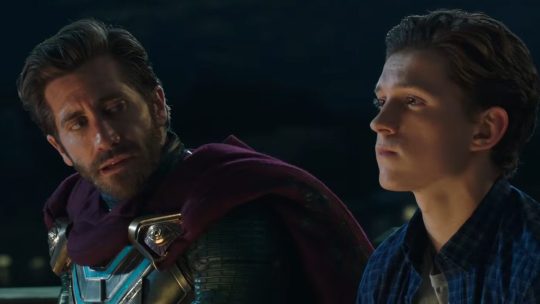
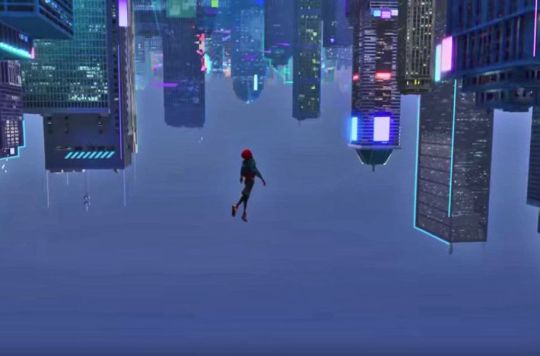
It really is a good time to be a Spider-Fan.
This guy is hitting all the right notes lately: he’s got a great video game beloved by all who plays it, he’s one of the golden boys of the MCU after only a handful of appearances, and he featured in one of, if not THE greatest animated movie of all time. Now if only his comics would undo One More Day and they renewed Spectacular Spider-Man and gave it the finale it deserves, things would be absolutely perfect.
So with me being a big Spider-Man fan, I think it’s about time I talked about his greatest cinematic achievments: Into the Spider-Verse and Far From Home. That’s right, Spidey is so good he’s conquered two mediums and delivered his best stories within a year of each other. My only regret is not talking about both of these films sooner, but I suppose that just gives me the opportunity to praise them both at once.
The greatest common factor these two movies have between each other, and what makes both films infinitely relatable and entertaining, is how both films feature a young protagonist who has great responsibility thrust upon them and they must find some way to deal with it. In the case of Peter, he is saddled with the pressure of being able to live up to his mentor, Tony Stark, in the wake of Endgame’s finale and Tony’s sacrifice. Frankly, Peter just wants to be a normal teenager, get the girl, and have a good vacation – it’s perfectly understandable, and while it may come off as a bit selfish, Peter is still a young man, a young man who has suffered through numerous traumas in his life and is probably upset he can’t just be normal for once. Of course over the course of the film he remembers that with great power comes great responsibility, and he rises up to save the day.
Miles, on the other hand, while initially a bit confused and unsure of himself and what to do, really does want to live up to the memory of Spider-Man, who he only knew a brief time before his death. However, he lacks training, he doesn’t understand his own powers, and he just lacks faith in himself. The entire movie builds up his character, his relationships to others, and all he does so that moment when he takes his “leap of faith” is well-earned and solidifes the moment when he goes from merely being a Spider-Boy to truly earning the name of Spider-Man. I find it very interesting how the two Spider-Men in the two best Spidey movies have sort of opposite motivations – one is being crushed by the pressure to be a world-saving hero while only wanting to be normal, while the other wants to live up to the destiny thrust upon him but initially lacks the skill and finesse to do so – before coming to the same sort of ending. More than the man in the comics who sold his marriage to a demon because he couldn’t deal with the consequences of his actions, these Spideys realize the immortal phrase from Uncle Ben that I need not repeat.
Of course, what would a hero be without a villain to oppose them? Thankfully, both films deliver some of the best superhero movie villains anyone could ask for. Far From Home is a bit more focused, giving us one major antagonist: Mysterio, in the least shocking movie twist of all time. But it truly is a testament to how great an actor Jake Gyllenhaal is and how good a character Mysterio is that he is able to sell you on all of his hero garbage right up until the reveal, and even afterwards he never once drops that affable charm and charisma that belies his true nature as a petty sociopath. Mysterio has always been a character who has struggled to find good use in the comics due to writers not knowing how to use him; he does not have that problem here.
Into the Spider-Verse, on the other hand, goes for what most Spider-Man movies tend to do: cram a bunch of villains in and see what sticks. Thankfully, they manage to hit home runs three out of six times and only whiff twice. Let’s get the less impressive villains out of the way first: Tombstone and Scorpion. While Scorpion’s design is cool and he gets some decent fight scenes, he really could be swapped out with a generic mook and it really wouldn’t make any difference either way. Tombstone, on the other hand, is an absolutely pointless waste of a character, which is a real shame. He’s the bodyguard for a guy who killed Spider-Man with his bare hands and has superhumans and cyborgs under his employ, he’s frankly a bit superfluous. Green Goblin is the only middle ground villain, one who isn’t amazing but is certainly cool enough in his own right to leave an impression despite only having a single scene. His monstrous design really goes a long to selling his threat level and his brutal fight with the original Peter really is impressive. Sadly, he dies at the end of the fight and is quickly overshadowed.
Then we have the two side villains that really work: Prowler and Dock Ock. Prowler is the obvious one, as due to him being Miles’ uncle he adds a sort of tragic emotional connection, one that is only exacerbated once Prowler hesitates in killing his nephew and ends up becoming Miles’ stand-in for Uncle Ben. Dock Ock is a bit surprising, seeing as she is a somewhat unique take, essentially a genderbent original character version of Otto Ocatavius, complete with all that implies (yes, I am talking about the relationship with Aunt May). She’s been the big breakout villain of the movie, and with good reason: she’s cool, she’s cunning, and she’s hot, all hallmarks of a quality villain beloved by the masses.
And then we come to the big one, and I do mean big: Kingpin. Here, his size and intimidation is played up for all its worth, turning him into an absolute mountain of a man and giving him one of the slickest designs I have ever seen. He’s a brutal, ruthless thug, but he’s also given a legitimately tragic and heartbreaking reason to his actions, and while it certainly doesn’t redeem him, it does make him an interesting and complex character. If nothing else, it’s just really nice to see Liev Schreiber finally get to be the villain in a good superhero movie and a good animated movie villain, after getting the shaft in both regards on two previous occasions.
The ensemble casts of both films are great. Far From Home ropes in Maria Hill and Nick Fury, and finally gives Hill some more to do while letting Fury have a lot more fun and taking a more direct approach than usual. Aside from that, all the returning characters are improved – Happy is nicer, funnier, and a better mentor; Dash is still a jerk but he’s toned down and has a bit of tragedy to him; and MJ is fleshed out, given a personality, and has excellent chemistry with Peter. And then there is Peter’s best buddy Ned, who gets ne of the funniest romantic arcs I have ever seen in a movie. And I’d be remiss to not mention Peter’s bumbling teachers, who deliver some more top quality humor to the proceedings. I think it would be best to state now that Far From Home is honestly really funny, with pretty much all of its humor hitting the bullseye, and a lot of that has to do with just how well these people play their parts and dive into their characters with the sort of fun conviction you’d want out of Spider-Man characters.
Into the Spider-Verse has the heavily advertised Spider-Ham, Peni Parker, and Spider-Man Noir, but they actually only appear in the last third of the film and really only stick around to showcase how good the animation can handle other styles, fuel jokes, and help fight in some awesome fight scenes. Frankly, this is enough; they don’t really stick around long enough to overshadow Miles, but they’re also around just long enough to establish personalities and endear themselves to the audience. Out of the three, I find Peni to be the least interesting due to changing her mecha’s design from the more Evangelion-esque one from the comics as well as her just not really grabbing my attention all too much, but it’s easy to see why she has fans. Personally, I preferred the cartoony antics of Spider-Ham and the noir-tinged grittiness of Noir. Also, Noir is voiced by Nicolas Cage and Ham is John Mulaney. It would be a challenge for me to not love them.
The major supporting characters are Peter B. Parker and Gwen Stacy, and both manage to be great in their own right while, again, not overshadowing Miles, with Peter especially being an absolute blast, giving us the miserable, chubby, downbeat Peter we never knew we needed and having him go through a full arc of his own where Miles helps him overcome his hangups as much as Peter helps Miles. Gwen is a fun character, but she sadly doesn’t get quite as much of an arc as Peter, but that will definitely be expanded upon in sequels; she’s still a solid sidekick here. The rest of the supporting cast, such as Miles’ dad, are solid characters, and the film also gives what may be the best version of Aunt May ever (though all Aunt Mays are great and let no one tell you different); I don’t really think the supporting cast is quite as good as Far From Home’s overall, but it certainly does have memorable characters that will stick with you.
Before wrapping up, I of course have to address this: Spider-Verse has some of the most amazing animation I have ever seen. It truly captures that look of being taken right from a comic book, and there are just so many clever visuals and shots that it’s simply astounding. This is the pinnacle of CGI, and revolutionary in the field of stylized CGI. I hope other studios take notes on how to make CGI look good and stylish like this.
Into the Spider-Verse is just a stunning piece of animation. It has good characters, a solid plot, a lot of great humor, a lot of great emotion, and some really decent morals, all while paying tribute to the comics and the Raimi films and giving us some closure by adapting bits of the unused Raimi Spider-Man 4. It’s a beautiful tribute to everything we know and love of Spider-Man while also being a fantastic “passing the torch” story that gives Miles his own time to shine in the spotlight. This movie is basically what Big Hero 6 tried to be, but where that movie kind of stumbled over itself and felt more like a TV pilot for a series on the big screen, this feels like a fully fledged story unto itself. It also has one of the most beautifully poignant Stan Lee cameos ever, as well as what may be the greatest joke in Spider-Man history after the credits. If you love Spider-Man, see this movie. If you love animation, see this movie. If you love movies, see this movie. This might very well be the greatest animated film of all time, and it deserves to be seen.
Far From Home, meanwhile, is a fantastic achievement in live action Spidey cinema. It gives us a wonderful supporting cast, a love interest who actually has chemistry and isn’t a boring damsel that disgraces the name of her comic counterpart, an awesome villain, and genuine funny moments, and for once all of these things are in the same moment! This really solidifies MCU Spider-Man as being a fun, fresh take on a character who has been done to death in almost every medium; it keeps most of what we love while changing some details here and there so that Spider-Man can resonate more with modern audiences. What they do change tends to be for the better, too – I really have no problem, unlike a lot of people, with Tony “taking Uncle Ben’s place,” for a variety of reasons but not the least of which is the fact I’m frankly tired of seeing Uncle Ben die. Having him merely be the long dead motivator for Peter’s early heroics is enough for me. This is absolutely peak MCU, and a fantastic epilogue to the Infinity Saga. If you’re invested in the MCU or Spider-Man at all, this movie will be right up your alley. If you still need more convincing: they combined Raimi Jameson and PS4 Game Jameson into a character, and Simmons still plays him.
Both of these films are the cream of the crop when it comes to cinematic versions of Spider-Man, with Far From Home sitting comfortably up there with Spider-Man 2, if not surpassing it, and Into the Spider-Verse frankly taking on a league of its own, Both projects really alter the course of what can be done with Spider-Man, and it has me excited for all the future works involving the Friendly Neighborhood Spider-Man we might be seeing soon. With Spider-Verse getting sequels and spinoffs and Far From Home absolutely getting a sequel, it’s safe to say that anyone who loves Spidey will have plenty to love for years to come. And the best part is we will never have to worry about either Spidey making deals with Mephisto.
#Michael in the Mainstream#Review#movie review#Spider-Man#Into the Spider-Verse#Far From Home#MCU#Sony#superhero movie#superhero#Marvel
11 notes
·
View notes
Text
Evan Rachel Wood Says Season 2 Of Westworld Is "Twice As Crazy"
I slowly opened the door to Evan Rachel Wood’s hotel suite amidst a whirlwind Toronto International Film Festival schedule to find her decked in a fire-orange Altuzarra blazer, sequined Christian Louboutin booties, and skin as porcelain as my kitchen sink. The steady stream of editors and publicists weaving between rooms in the hall outside didn’t faze her. Her space was peaceful—tranquil, even. But that, I’d come to learn, was Evan—soft-spoken and poised with a warm air about her. We sat down to talk about her newest role in the soon-to-be-released film A Worthy Companion, where she plays Laura Drake, a confused and troubled young woman who forges a strange and ultimately unhealthy relationship with a 16-year-old girl. A role which, Evan told me, was originally written to be played by a man.
But, what, do you think I would leave before a friendly interrogation on what’s in store for season two of Westword—it’s “twice as crazy,” she says!—or a rapid-fire game (which you’ll want to watch below)? Never.
Noah Lehava: What drew you to the role of Laura Drake in A Worthy Companion?
Evan Rachel Wood: “I was blown away by [the script]. My character was originally written for a man, and they had gender-swapped it. I was really excited about that, but dreaded it, too, because I knew I had to do it. I was really not looking forward to the experience because it was going to be really intense. I loved that I had never read a script on this subject matter, which was told in this way—from a woman’s perspective, who is the predator. It really explored the psychology of abuse—not just this black-and-white, here’s the victim and here’s the monster. It delves into how [an individual] gets to that point and opens it up for a much larger discussion.”
NL: Laura is really complex; did you find it challenging to play her?
ERW: “It was difficult for me to play an abuser because it’s so unnatural for me. I was happy to know that it didn’t come naturally [laughs]. She has so much emotional baggage, and is dealing with dissociation, manic episodes, and PTSD, so she has a cocktail of mental disturbances. The script was a really honest portrayal of somebody that’s a prisoner of their own trauma. And when you don’t have the help that you need, and don’t have the means to get help after you have gone through what she’s gone through, it manifests in all of these different ways. It was interesting to show the dichotomy of a person who is doing these horrible things and abusing this young girl, but, in her mind, really thinks she’s saving her. I think she sees herself in this girl—there’s no malice in what she’s doing. She’s really just not in control of her emotions and has no gauge as to what’s normal and what’s not. There’s real tragedy in her, as well as in the young girl. It shows you how the abused can become the abuser if it’s not dealt with in the right way. It took a long time to shake; this one took a lot out of me. I got really sick after [filming] was done, and it took about a month to feel normal again. It was a real roller coaster.”
NL: How did you chill out?
ERW: “I live in Tennessee, so it was nice to get away, go to the country, and chill for a second.”
NL: We have to talk about Westworld!
ERW: “Yes!”
NL: First off, tell me, how much did you have to work on your posture?
ERW: “I have to get work done on my back all the time because sitting there like that for six hours [is straining]. This season [the directors] were actually like, ‘You can relax. It doesn’t have to be that perfect.’ But I’m the one who always insists on wearing the corset because I want to stand right.”
NL: Can you give us a hint to next season?
ERW: “We’re midseason right now, and it is twice as ambitious as the first one. Twice as crazy! I didn’t think it could get bigger or crazier, and now we’re halfway through, and I just can’t even believe what we’re doing. I’m on the show, and I’m still getting shocked and surprised at everything that they’re throwing at me. [Dolores is] a very different character this season.”
NL: Yeah, something clicked in her in the season finale. Are you scared of A.I. yourself?
ERW: “You know, no. I used to be, but the more research I did for the show and the more I learned about it and talked to futurists, the more I realized there’s a lot of hope in A.I.. They’re going to be better than us. It’s sad because it also may mean that we’re going to be obsolete—but at the same time, if they’re going to be better and if the world’s going to be better, then I’m weirdly supportive of it.”
NL: I never thought about it that way...
ERW: “It is scary, and I think we are at a real kind of... It’s a really strange time to be alive because I think technology is going to keep getting more advanced faster and faster. It’s a great time for the show to really explore that and explore the nature of human beings and what really makes us human. I feel like humans are being held back a lot, kind of like the host in Westworld. Evolution is being held back a lot, and we could be way more advanced than we are, so we’ll see. There will be much better problem-solvers, and we won’t be burdened with a lot of the shit that our minds are.”
NL: If you were a guest at Westworld, what fantasy do you think you would play out?
ERW: “At Comic Con this year, they had a Westworld installation, and they had these amazing actors come in and evaluate you, and tell you if you’re going to be a White Hat or a Black Hat. It was scarily good. They had real personality tests, and at the end, they gave you a detailed overview of your personality—it was dead on. It was so creepy, and everybody that did it felt the same way. Some people came out [of it] emotional and with tears in their eyes. And I was like, ‘Oh, what if I’m going to get a White Hat or a Black Hat,’ and it ended with her saying, ‘I think you need to choose.’ I chose the Black Hat. It just felt more honest about it because I believe that every human is a Black Hat. And that doesn’t mean I’d go and just like kill everybody and be a lunatic, but I do think it would be a bit naive to think that I would just be good the whole time. That’s just [an] honest answer [laughs].”
NL: What’s next for you?
ERW: “Well, my band Rebel and a Basketcase is actually no more, but I’m still making music. I’m doing some of my own now. It’s very different, but I’m stocked. Rebel and a Basketcase was really fun, empowering, happy music, and I think my solo stuff is going to be a little more gritty and moody, and just a different side—my Black Hat side [laughs].”
#evan rachel wood#Interviews#coveteur#interviews 2017#westworld#a worthy companion#toronto film festival#tiff 2017#interview
8 notes
·
View notes
Text
Evan Rachel Wood on Her Gritty New Psycho-Thriller, the Emmys, and Westworld Season Two
Evan Rachel Wood doesn’t have a lot of time on her hands, what with playing both robot Dolores and robot-who-doesn’t-think-she’s-a-robot Dolores on HBO’s Westworld — and, this season, it seems from that killer season-two teaser trailer, woke-robot Dolores. So it says a lot that, on hiatus, she starred in a gritty independent psychological thriller, A Worthy Companion, from two Montreal fine-art photographers (and brothers), Carlos and Jason Sanchez, first-time movie directors. The film, which debuted at the Toronto International Film Festival, follows Wood as Laura, a 30-year-old fuckup working for her father’s (Denis O’Hare) cleaning company, as she strikes up an ill-advised and increasingly disturbing relationship with Ava (Julia Sarah Stone), the 16-year-old daughter of one of her cleaning clients. It’s a wrenching and often unlikable part that delves deep into the complex of the cycles of abuse, and how the familiar path for those in pain is to perpetuate more pain. Wood’s is a barn-burner performance, but even the Sanchez brothers are shocked she said yes pretty much right after reading the script, and met up with them to talk it over the day after Westworld premiered.
“We were flattered because she told us she wasn’t going to make another film that year,” Carlos told me. They’d seen her in 13 and The Wrestler, but Jason says the Westworld trailer is really what convinced them to cast her, because it was impressive watching her switch between her robot and human characters — which is what Laura is often doing in her manipulations as she switches from tender to enraged and back again. Wood brought so much authentic pain to the part that the Sanchez brothers rewrote the ending because they felt the original one didn’t do justice to the character she’d been building. “We were super stoked to work with her,” said Jason, “but what we got from her was just fucking mind-blowing.”
We spoke to Wood — who looked amazing in a bright-orange Altuzarra coat and sparkling Louboutin booties — about diving into this movie, what to expect from “woke Dolores” in season two, and how freaked out she was for her Westworld finale moment with Sir Anthony Hopkins.
So, the opening scene of this movie is insane. This guy walks into your apartment, blindfolds himself, and then you get so rough and violent with him during sex that he throws you off him and runs away. I was like, “What is happening?” I know. [Laughs.] We don’t waste any time. One of the things I loved about the script is that this was the first scene, because I read it for the first time and went, “What is it?” But also, I thought, “Good for you! You’re holding nothing back!” I thought it was a great way to tell the story — usually it builds and you’re like, “Who’s good? Who’s bad? What’s going on?” but here, right away, you see the darkest side of this girl. And then the whole first half is just this crazy tension because you know already what’s lurking under there. I thought it heightened everything really well.
Why do you think she needs the guys she has sex with to have blindfolds on? Who knows? She’s got a lot going on in there, a lot of mental disturbances. I’m assuming she’s gay and was abused at a very young age. Those two are not connected in any way, but if she has issues with men, and if she has issues with her own sexuality and shame and whatever she’s dealing with, when you’re traumatized that young, it manifests in ways that don’t make a lot of sense until it goes to the source. It manifests in everyone a little differently, and I think that’s just her thing.
The main relationship of the movie, this 30-year-old woman with a 16 year-old girl, will be pretty controversial for audiences. It definitely is. Another thing I love about the script is that my part was originally written for a man and then they gender-swapped it, which is so cool because it brings so many different layers to that character and to the relationship. I love that it is two women, but it’s never really talked about or touched upon. It’s not what the movie’s about. It’s about a woman and a younger girl, but it’s really about abuse, the cycles of it, the psychology of it, codependency. When I saw it, I wasn’t even phased by it. There was so much other stuff going on.
And the Sanchez brothers told me it’s the only movie you shot last year? Yes. And I didn’t want to do anything. I’d just done Westworld and I was like, “I’m taking a break,” but then I read the script and was like, “Dammit, I have to do this. And it’s going to be hard, and I’m not going to like doing it.” But I hadn’t read a script like that. Somebody compared it to Big Little Lies and how it really showed the whole picture, not excusing the perpetrator but humanizing them, giving you insight into what was going on and how they got to that point. It excited me because it wasn’t black and white: Here’s the victim, here’s the abuser, let’s focus on the victim the whole time. No. It’s a more in-depth look in how we get to this point, and how does the abused become the abuser?
There’s not really a good or bad guy; abuse is a well-rounded tragedy for everyone because normally, when people are doing that, it’s because they’ve been broken at a very young age. So it’s just as tragic watching somebody be prisoner to their own trauma, not in control of what they’re doing because their perspective is so skewed. I’m not excusing what she does in any way, and it was important to me that we didn’t let her completely off the hook. But I definitely think it’ll spark more conversations about it for sure.
You really lay everything out on the screen. Were you okay at the end of every day? Yeah, but I needed a month afterwards, because I was messed up a little bit after that movie. I need to rest and go to my house in Tennessee and just … don’t think about bad things. It took some recalibrating.
Weren’t you supposed to do a different movie this year, your own directorial debut? It’s a road-trip movie you wrote, right? I cowrote it. But I had to push it because it got too stacked up against the Westworld schedule, and I want to do it right, so I pushed it.
But it is going to happen? Yes, after season two.
With the same cast of Jenny Slate, Alison Pill, and Cynthia Erivo? Yes, as of now.
That’s great, because it’s such a good cast. The best cast.
Jenny spilled the beans, didn’t she? She did! I was like, “Don’t worry about it.”
I felt bad, I love Jenny and I actually wrote the article where she said it, and as soon as people started picking it up as a big news item, I was like, “Oh no.” I know! [Laughs.] She texted me right after like, “I think I did a bad thing.” I was like, “No, it’s fine. It’s fine.” She’s great. I just saw her new movie, Landline, and she’s so incredible.
I was nervous about asking you! No, it’s fine. I’m not nervous about it in any way.
Okay, good, so this is the part where I deluge you with Westworld questions. Where are you at in the filming of season two? We’re at the halfway point.
Obviously feel free to stop me if I run into something you can’t say. I mean, there are so many things I can’t say! [Laughs.]
Where are you filming? Santa Clarita and Utah. Same as season one.
Can you give me one free-and-clear clue about season two? It’s twice as ambitious. I’ll try to say the things the showrunners have said, so I know it’s okay. I think somebody asked Jonathan Nolan if we were going to see other worlds this season, or how many worlds we would see, and he said, “More than one?” So there’s that little tidbit. [Laughs.]
Can you talk about how Dolores has evolved? The last time we see her, she is unhinged. I think we’re going to see a new, woke Dolores. We’re going to get to see what that looks like and how it plays out.
Like woke as in Westworld woke, not as in politically correct woke, right? Dolores woke! It’s fun! [Laughs.]
In the trailer we see her riding that horse and shooting guns like a fucking champ. She’s a very different, different character — with still the essence of who she was, but awake.
What is your favorite part about playing woke Dolores in season two? The show is always a surprise. We don’t get to know exactly what happens, so we’re finding out along with the audience, and it’s just a ride. You have enough info to do your job, but you never know what’s going to happen next. It’s constantly exciting, it’s never boring, and it’s extremely difficult because it’s a very complex, challenging, technical role. But because there are endless possibilities on the show. I feel like I could do it for ten years and it would be different every year. So I don’t think I’ll ever get bored.
I think in older interviews you said you figure out the season one twist pretty early on. How are you doing sussing out the season two twist? I figured it out again!
Because you’re a nerd! Yeah, but it’s a lot like last season — I figure it out, but they don’t fill in the blanks for me. Usually I’m like, “Okay, I think I have an idea of where this is going,” and then the payoff is always so incredible, so much bigger than I could ever imagine. I think the same goes for the audience — you’re supposed to figure out the show, and even if you do, it’s okay because the payoff will always be way more than you could ever dream up. So I did kind of talk to one of the showrunners and say, “Okay, tell me if I’m going in the right direction. Is it this?” and they said, “Stop bugging the writers room! Don’t tell this to anyone!” I was like, “Okay! Okay!”
Did you learn any new skill sets that you could take out into the real world and be, like, a ninja? I mean, you already used shotguns and rode horses in season one. Yes, but this is a whole other level. I mean, she’s pretty awake! [Laughs.] I’ve maybe been learning a few things here and there that are fun. But it was crazy, when we shot the scene for Comic-Con, Jonah came up to me and said, “How would you feel about riding a horse with no hands at full speed shooting a rifle?” I said, “I mean, I can do it …”
You already knew you could! No! I’d never done it! But I’ve ridden before, and I’ve ridden bareback, and when you ride, you’re already riding no hands anyway, but this is — it was a whole other level! I remember just kind of staying calm all day, and when it was over and we did it I was like, “Great, I’m going to go have a panic attack and get on my knees and thank God I’m still here!” But they’re so safe on that show, the wranglers are incredible and the horses so well-trained that it was one of the cooler things I’ve gotten to do in my life. So much fun. And not fake. [Laughs.]
It’s funny when you talk about how much more ambitious it is. They had to halt filming in the season one to rewrite scripts. So what does that mean, just on a practical standpoint, to make it more ambitious? We’re approaching it differently this year. They were writing while we were filming last time, and that was too complicated, so they have everything written. Season one, we were also shooting out of order, which is weird, but it was the first season, and it is an ambitious show, so we were all figuring out how it works. Now that we know how it works, we’re all kind of surrendered to the experience — and to never really knowing what’s going on.
You choose what you submit to the Emmys, right? What did you pick? I submitted episode ten. You know, it all comes together for Dolores in that one.
And you knew she was going to do that? No, not until I read it. I was absolutely shocked.
You were like, “Thank you!” It was incredible! So well-written. Jonah directed the pilot and the last episode and they’re stunning, but no, I had no idea.
What did Anthony Hopkins say to you after you shot him in the head? I went up to him after I read it and said, “I’m so sorry, I have to kill you!” and he was like, “No, it’s wonderful! It’s such a beautiful piece of the story! It’s great!” He was all for it, but it was one of the most nerve-racking experiences of my life, holding a gun to Anthony Hopkins’s face. A real gun, not loaded! I was just like, “Ahhhhhh!!!!” [makes face of being excited and terrified and overjoyed all at the same time] “Ahhhhhhh!!!” I just kind of did one of these before every take.
#evan rachel wood#articles#vulture#Interviews#westworld#a worthy companion#tiff 2017#toronto film festival#article#articles 2017#interview#interviews 2017
7 notes
·
View notes